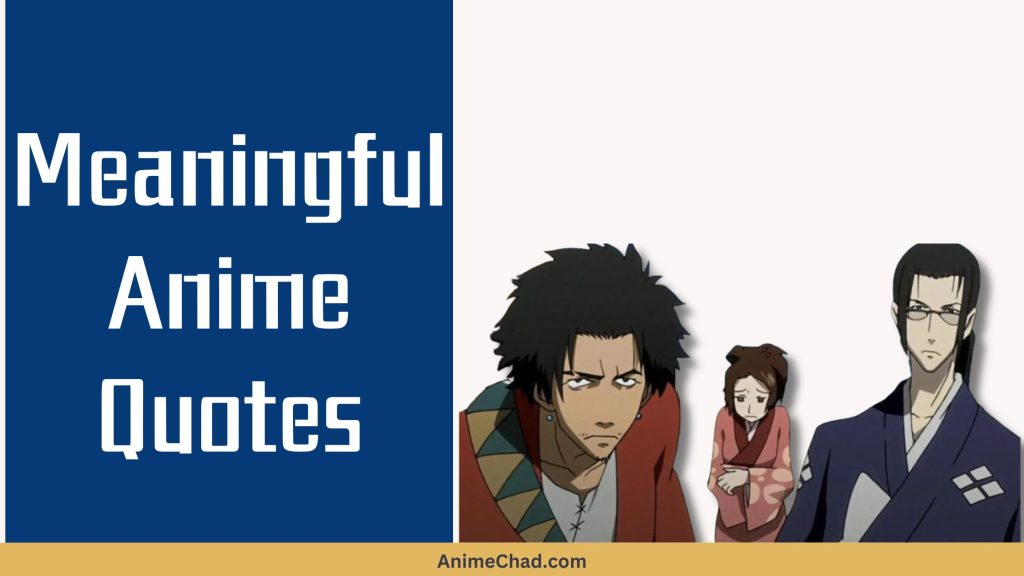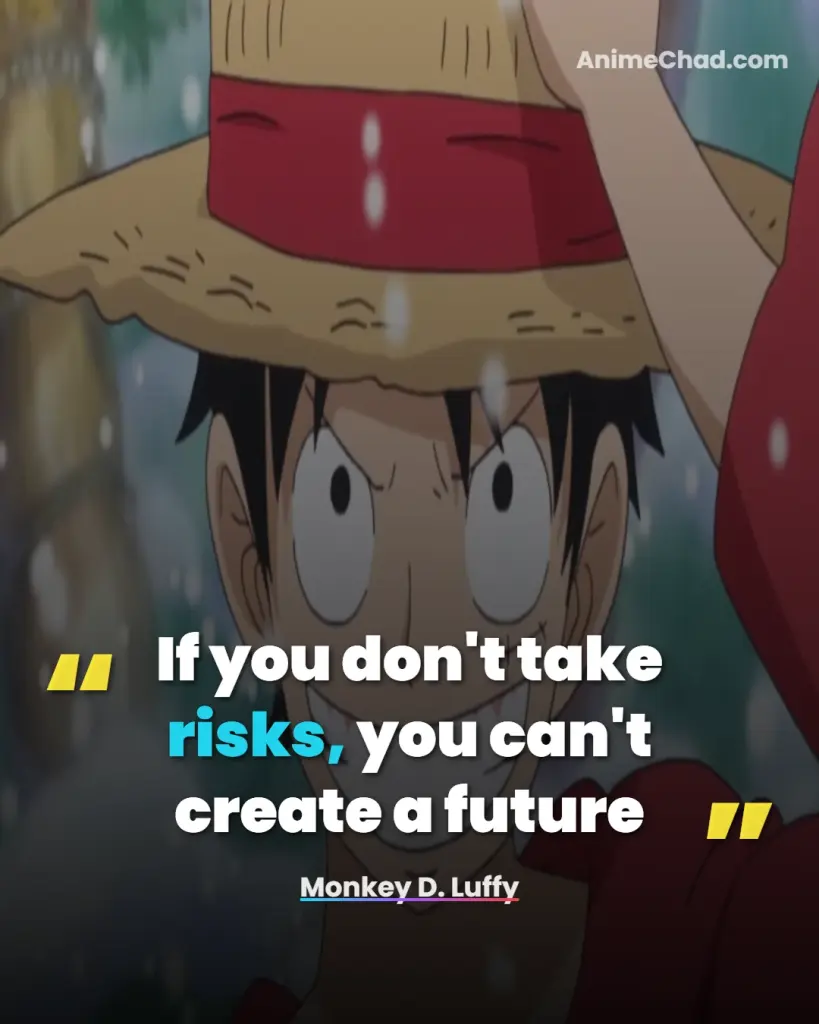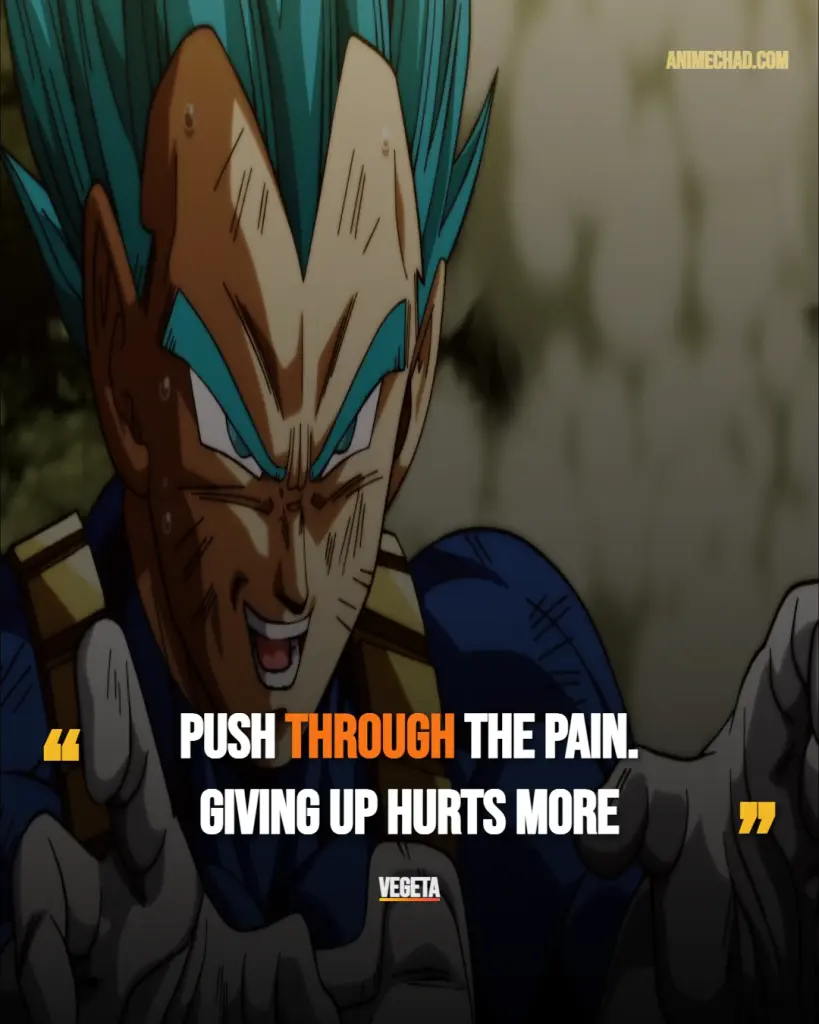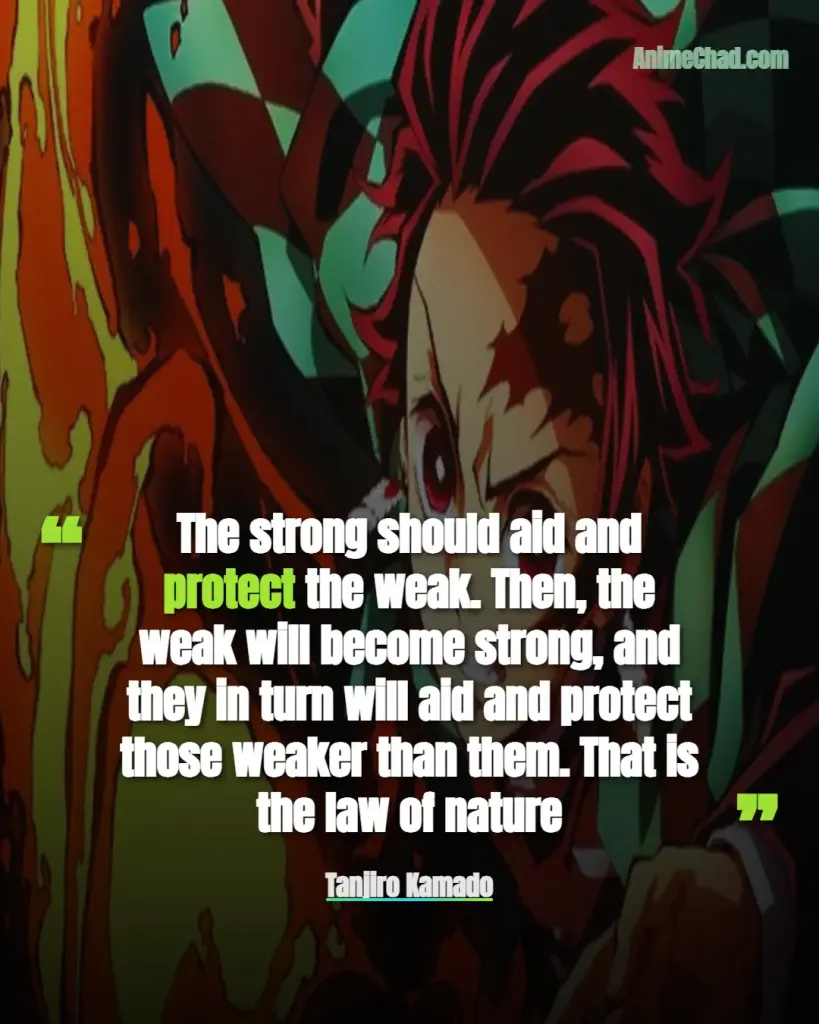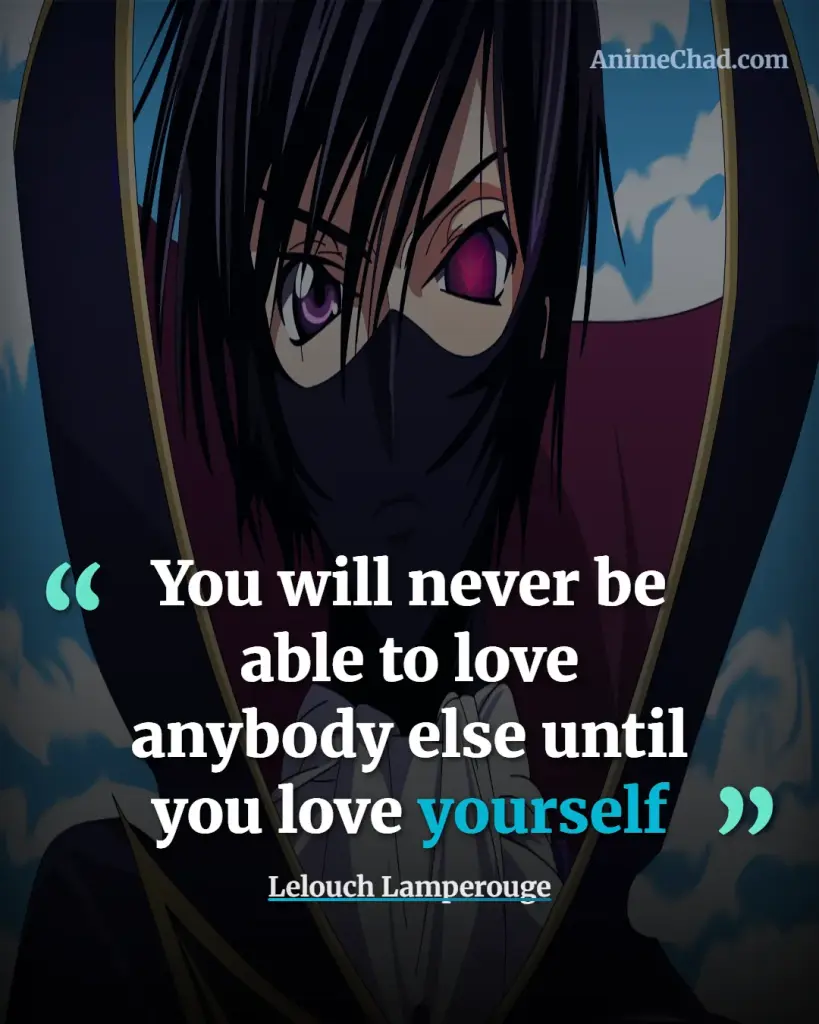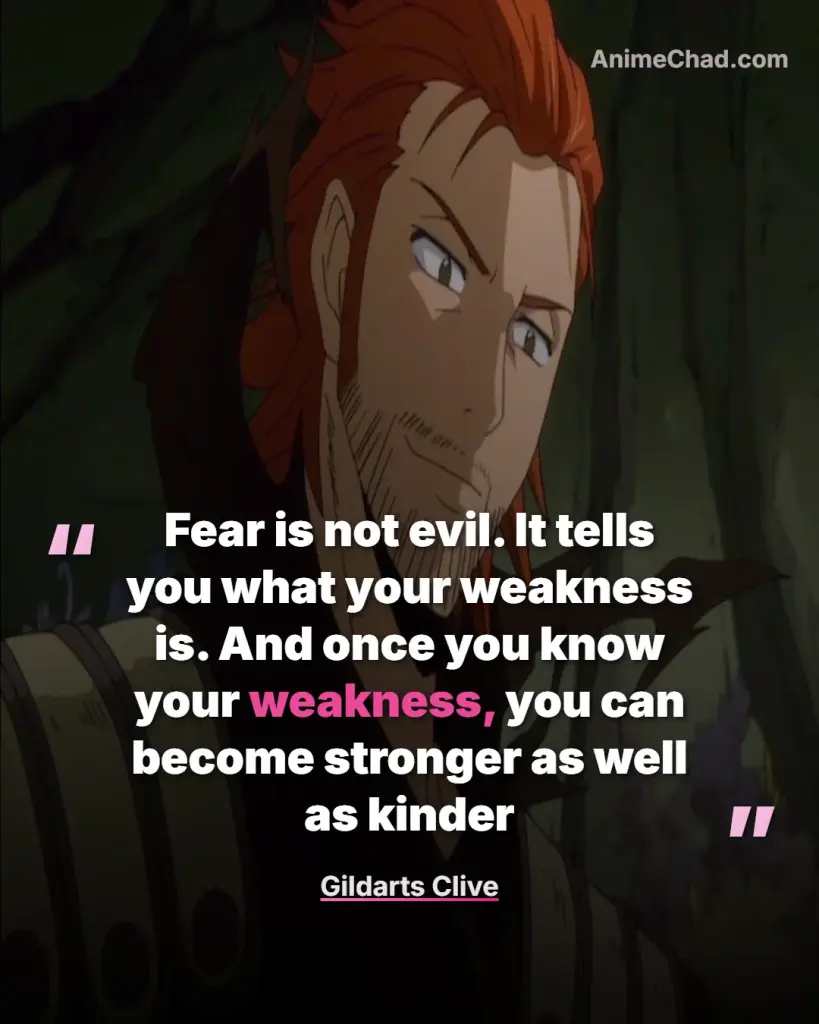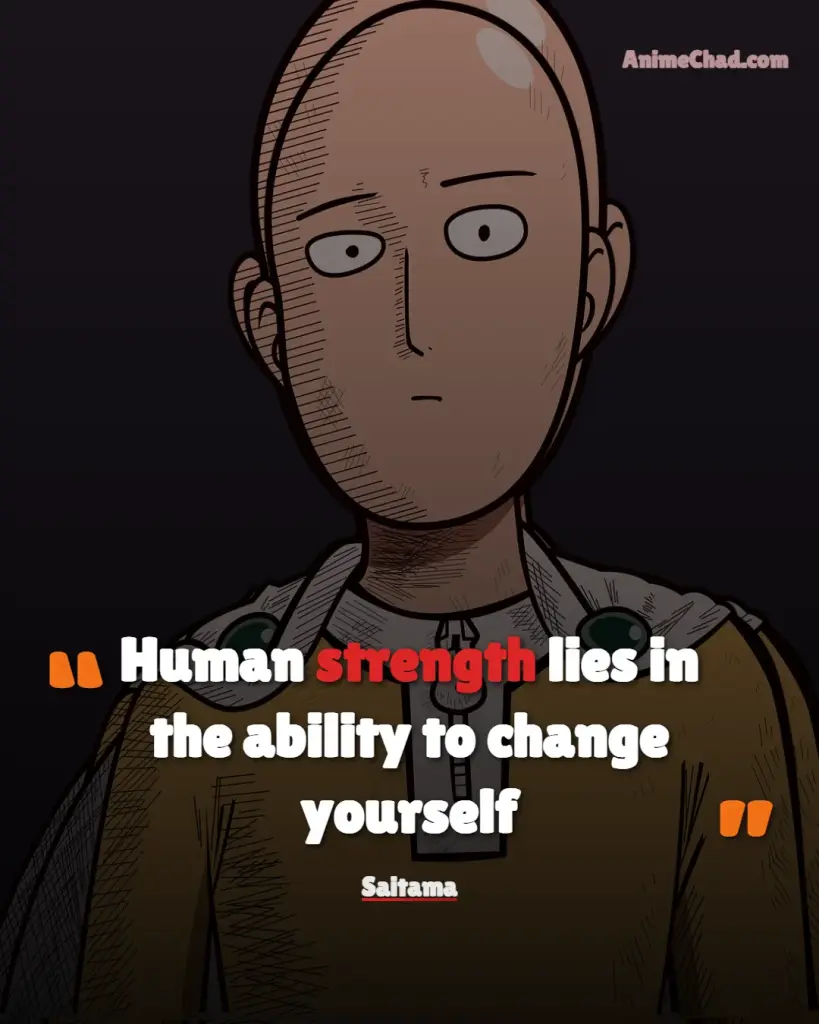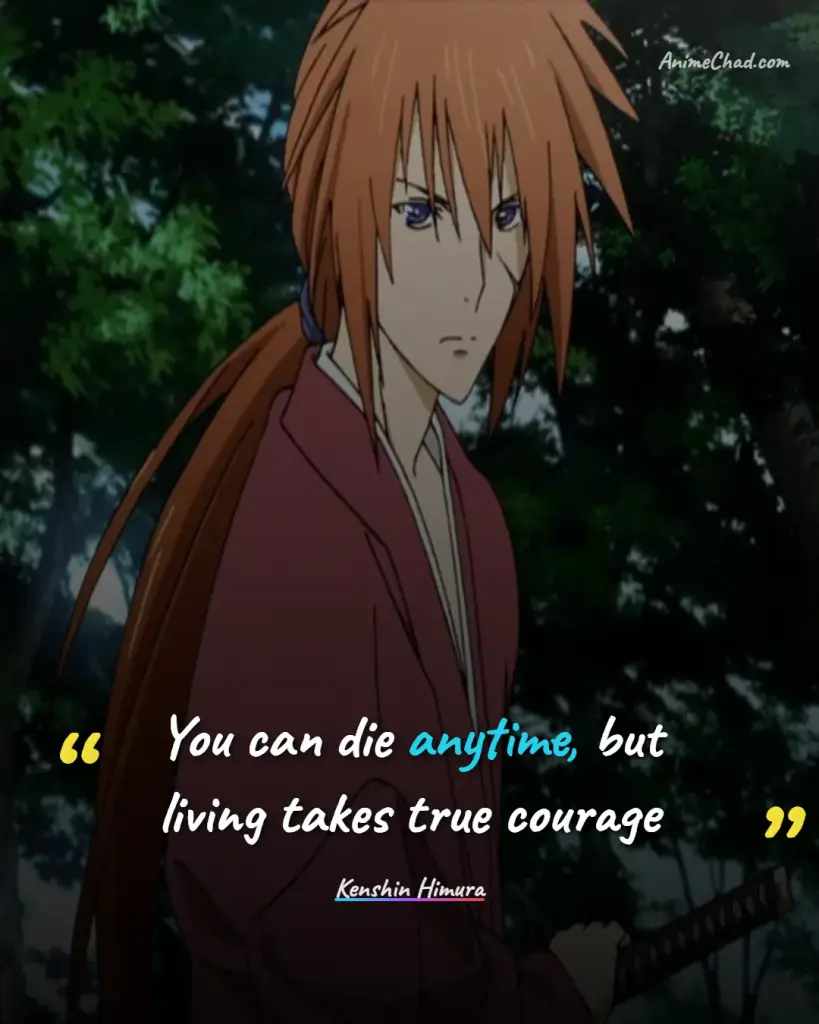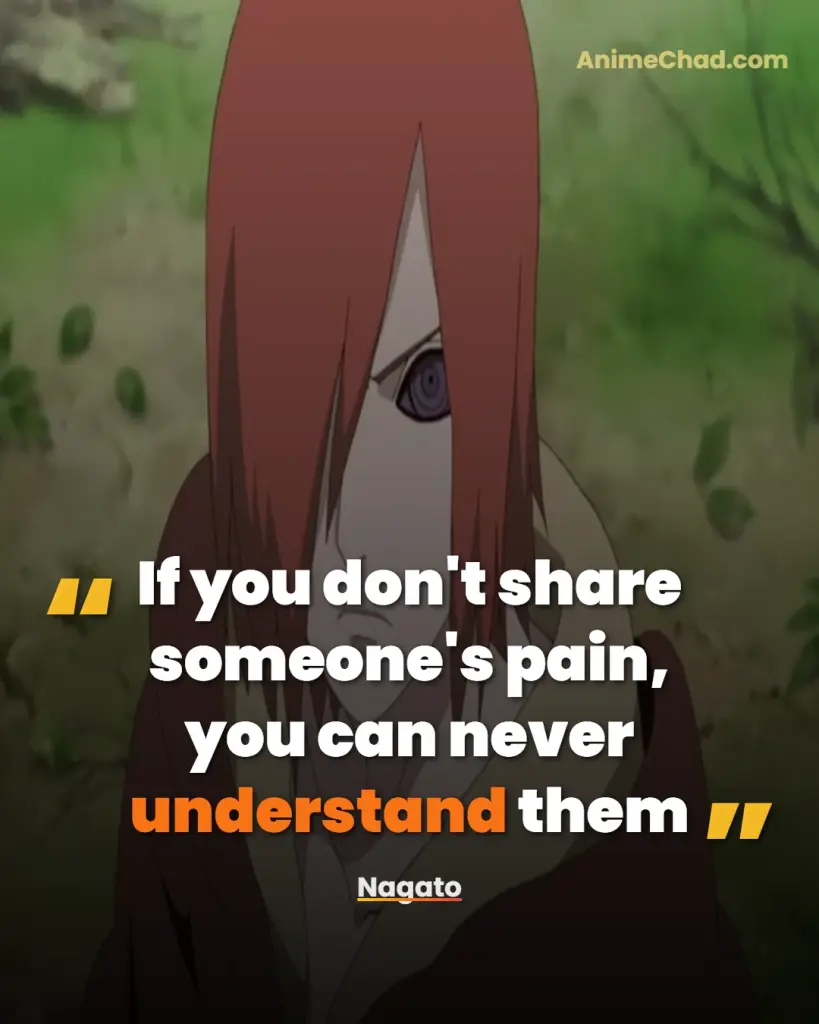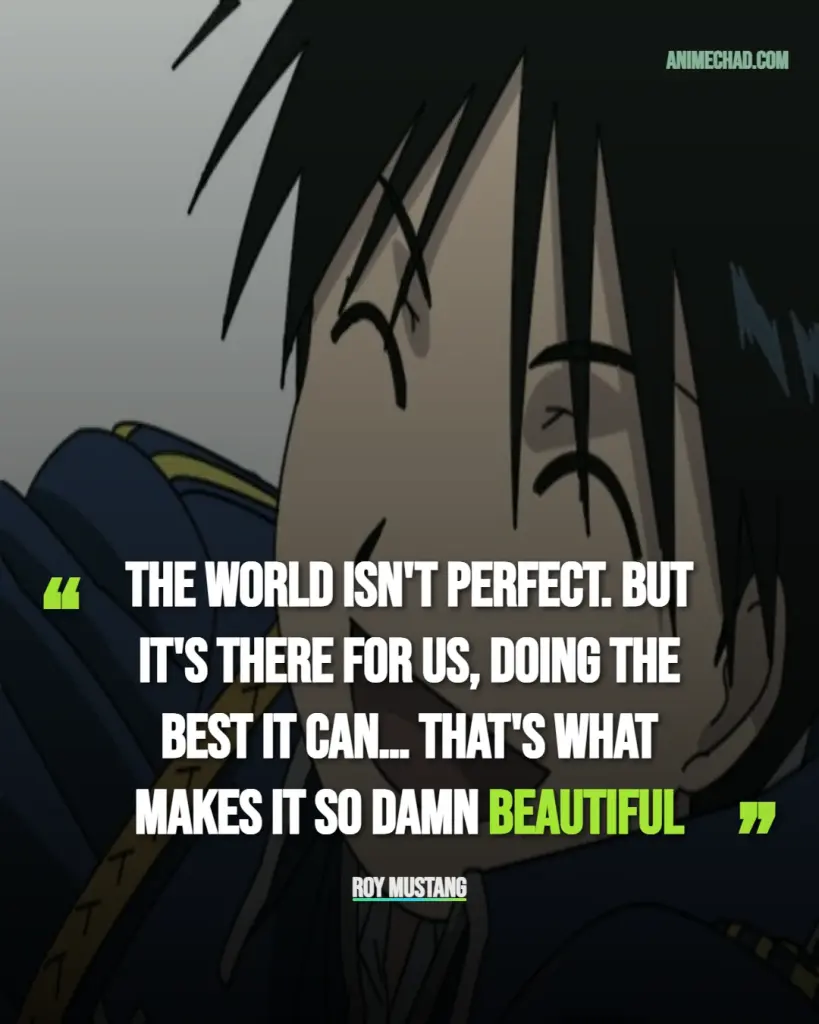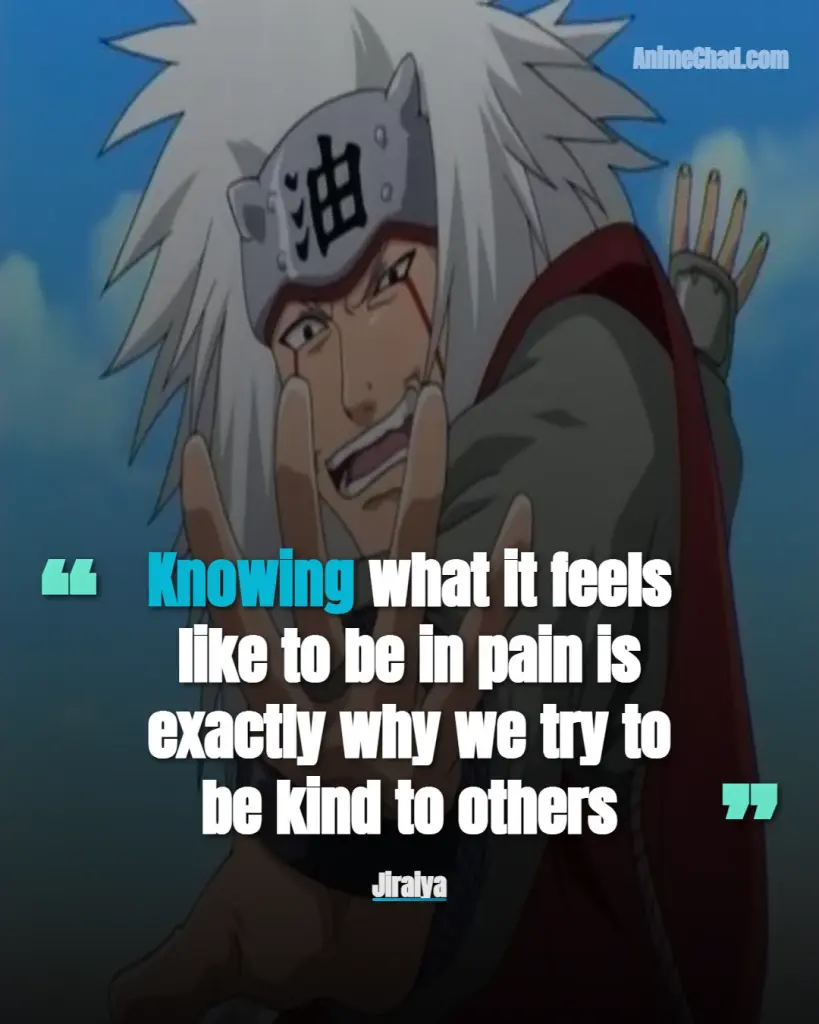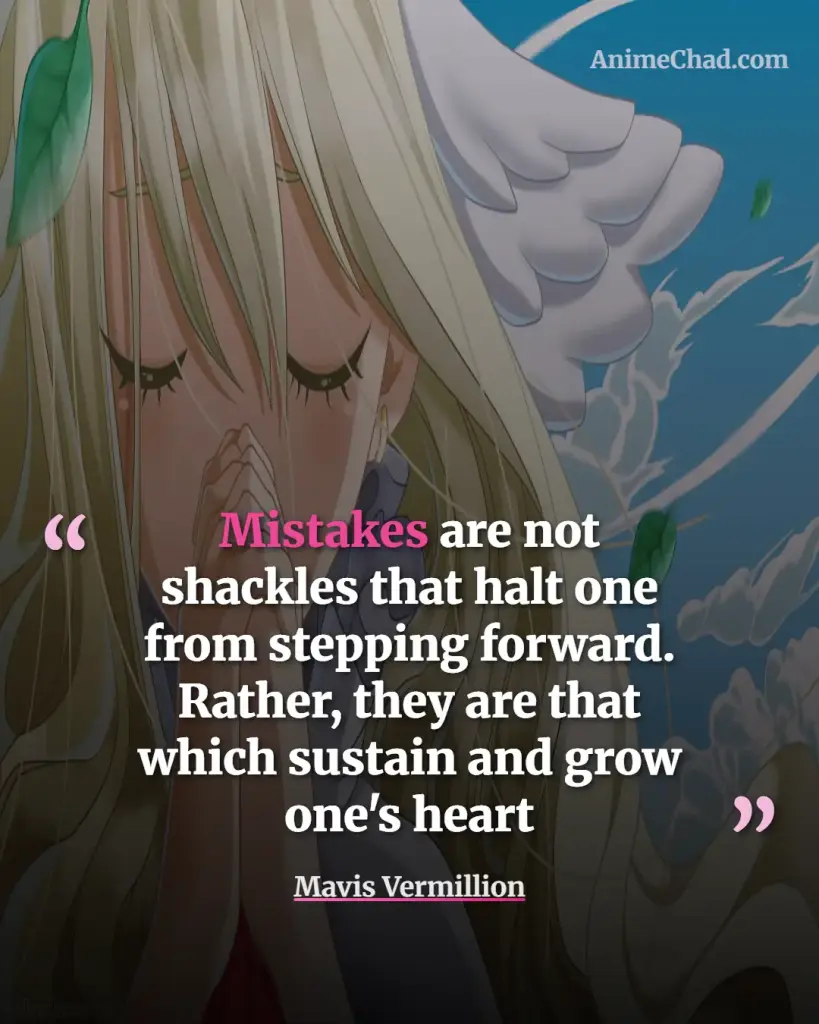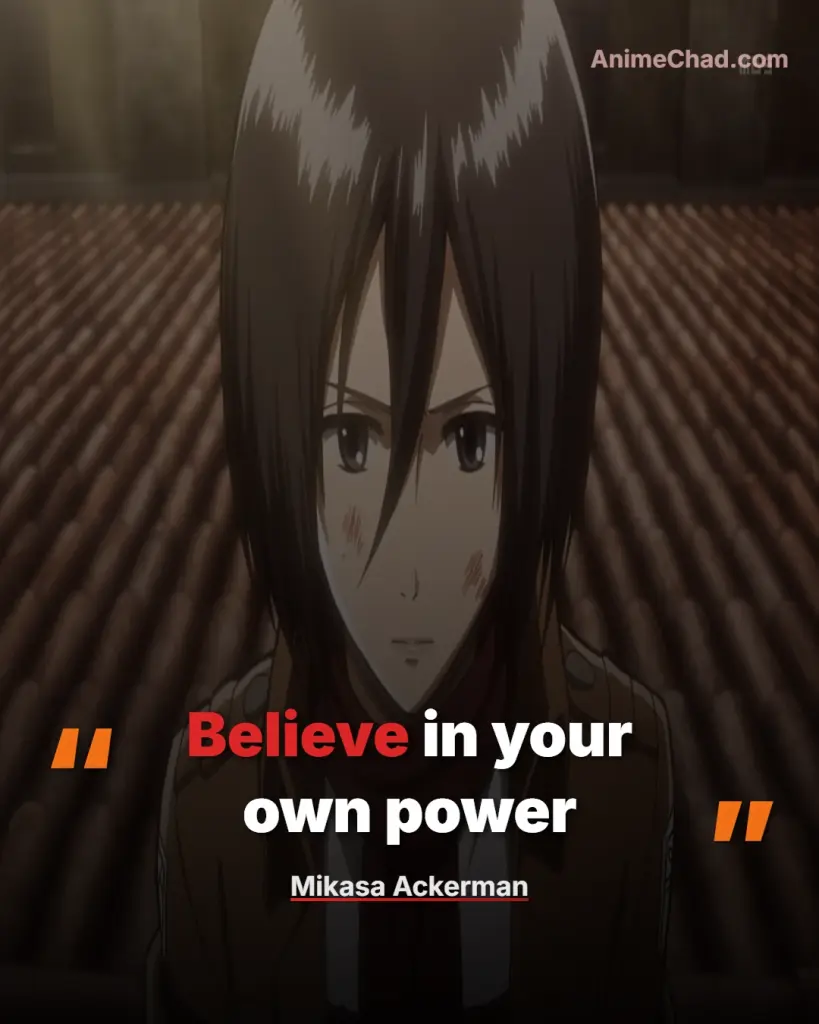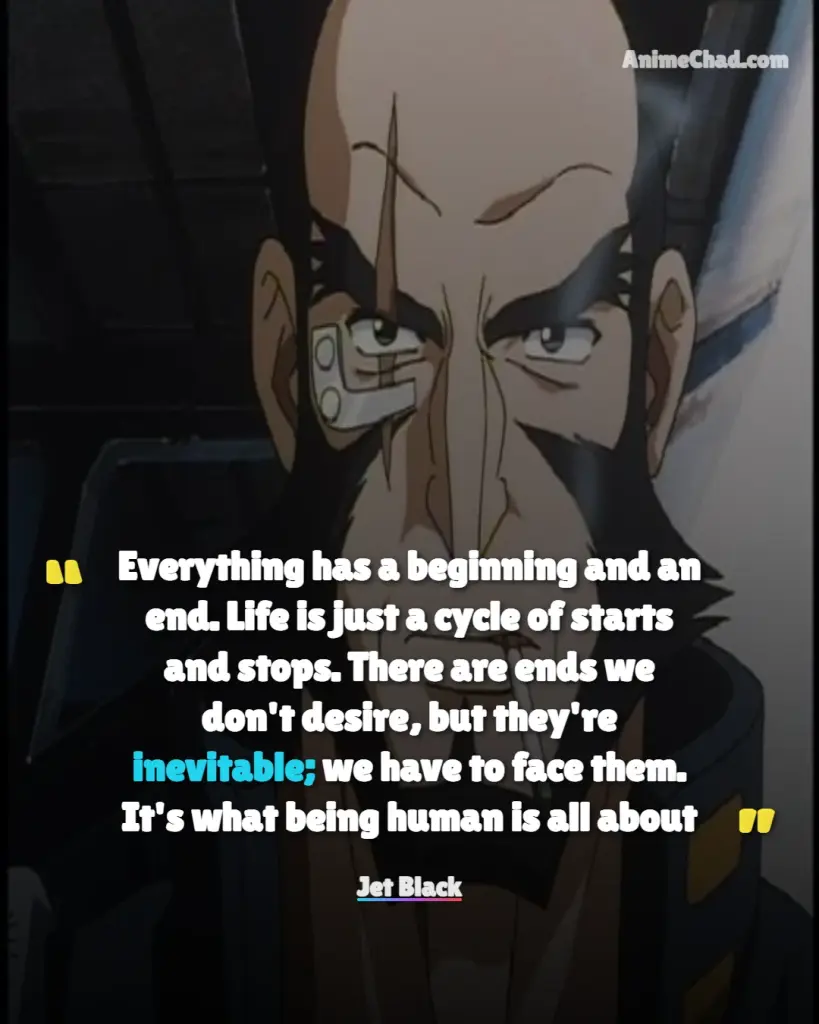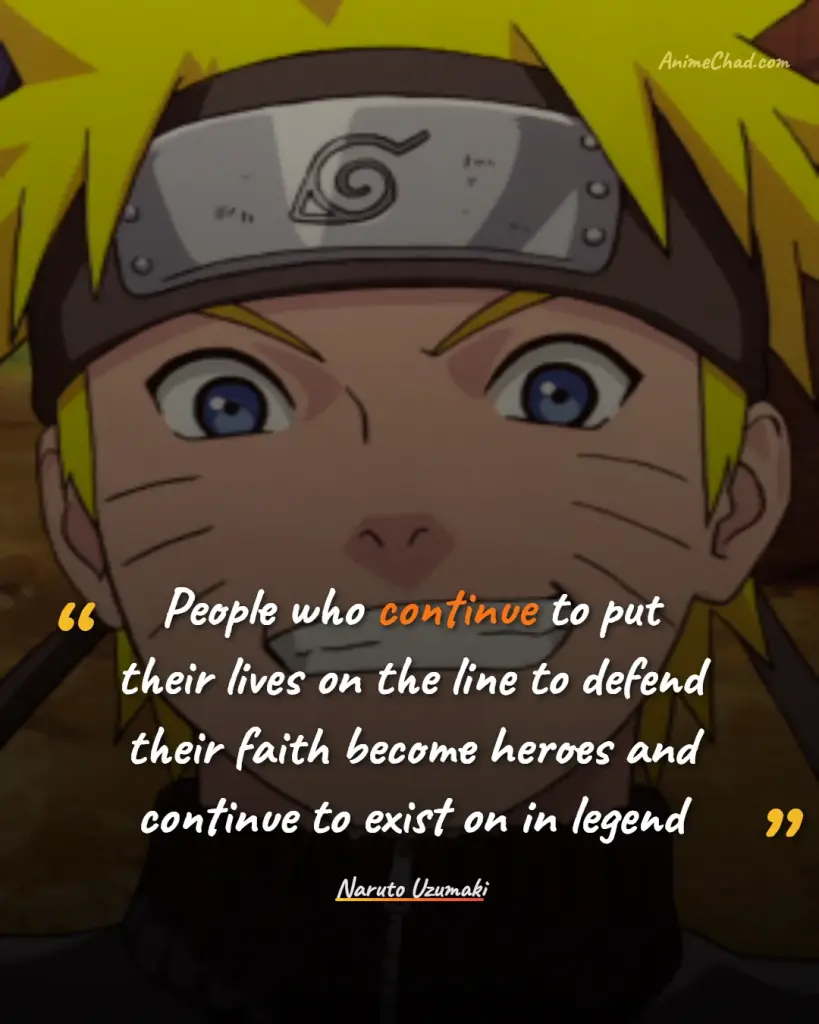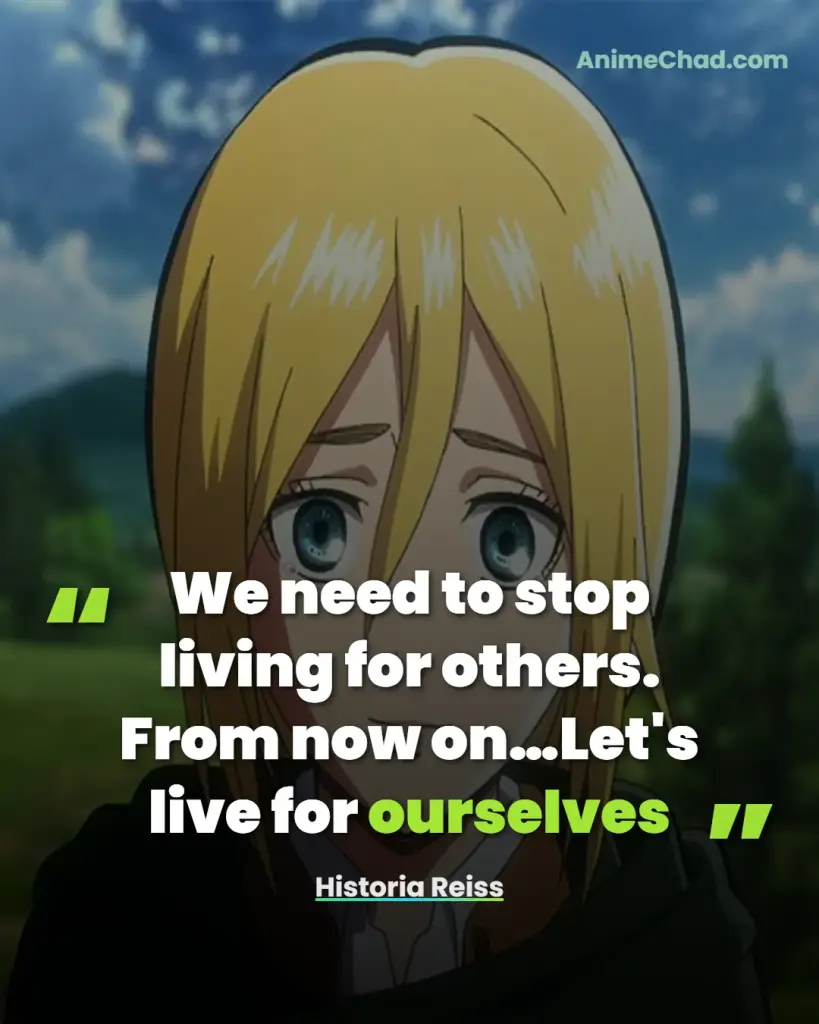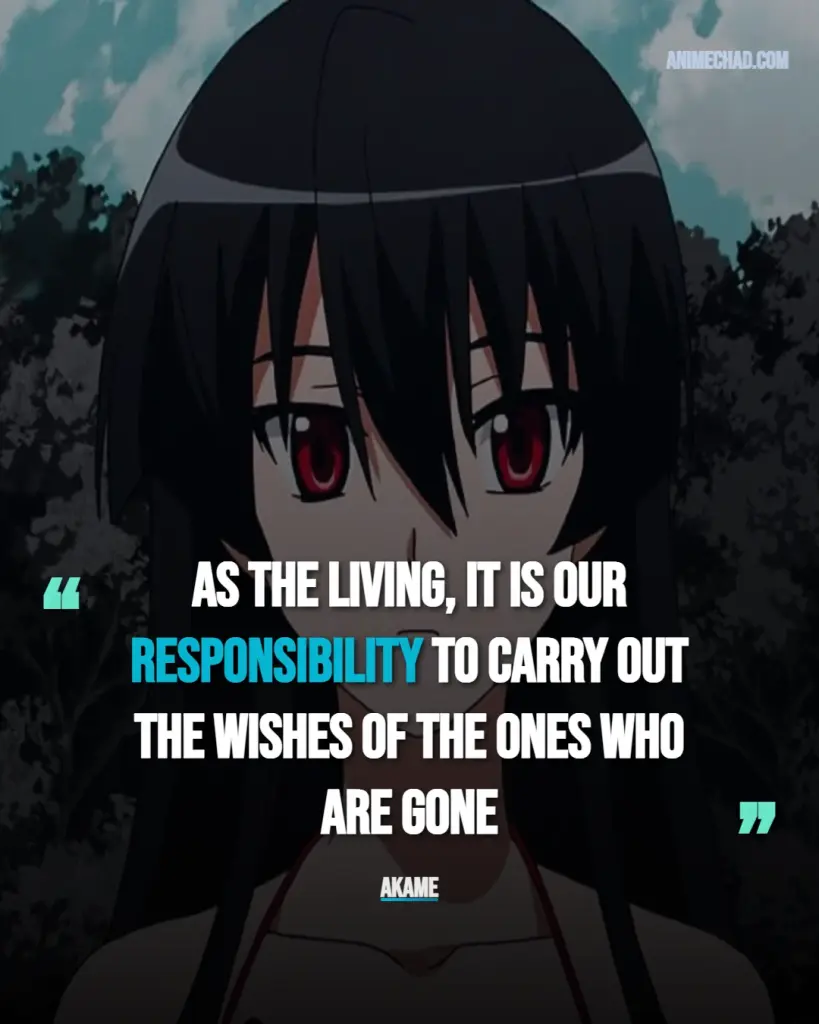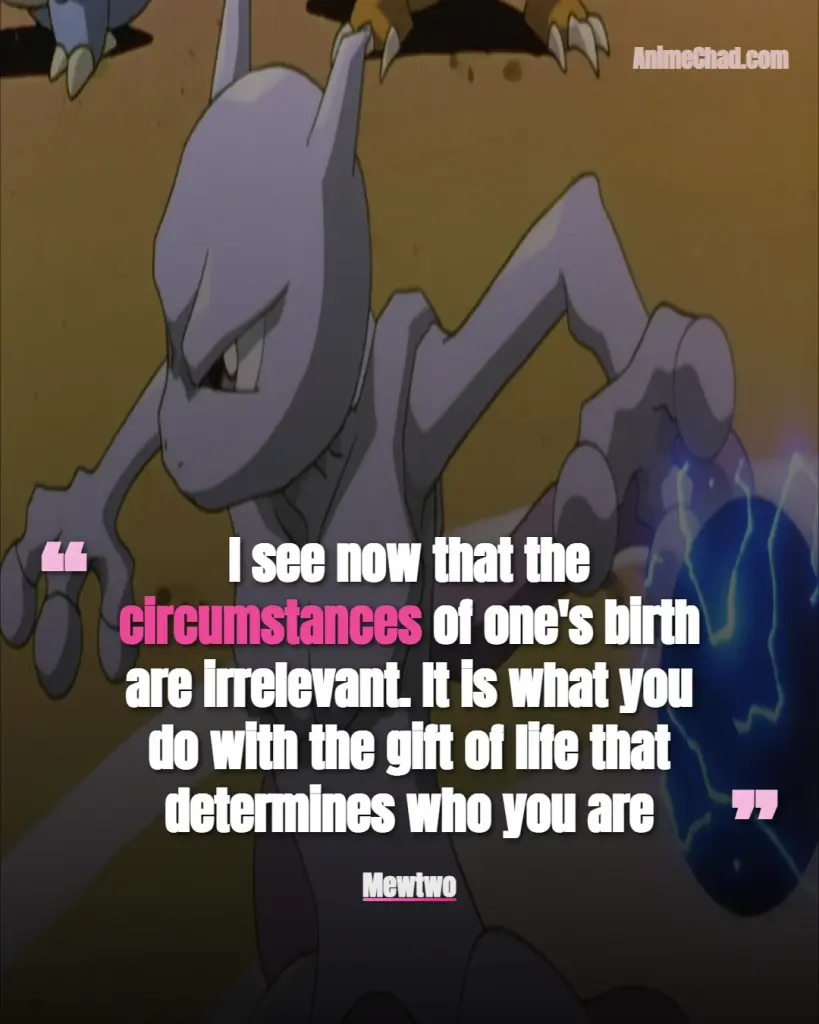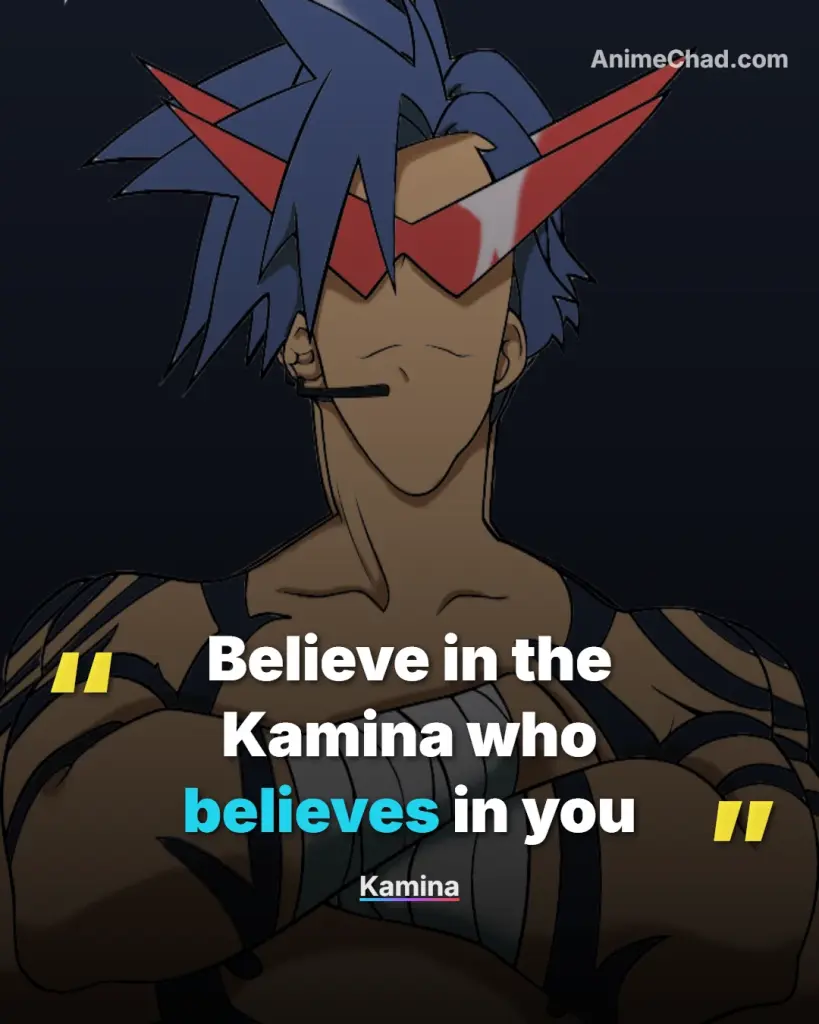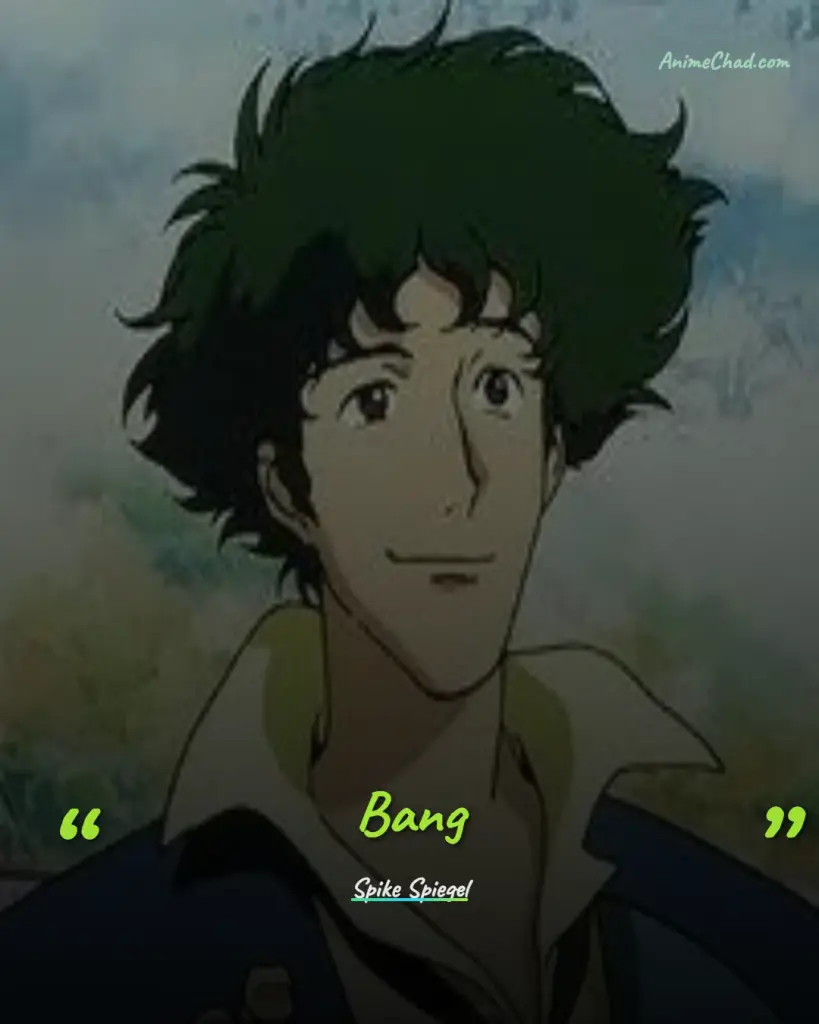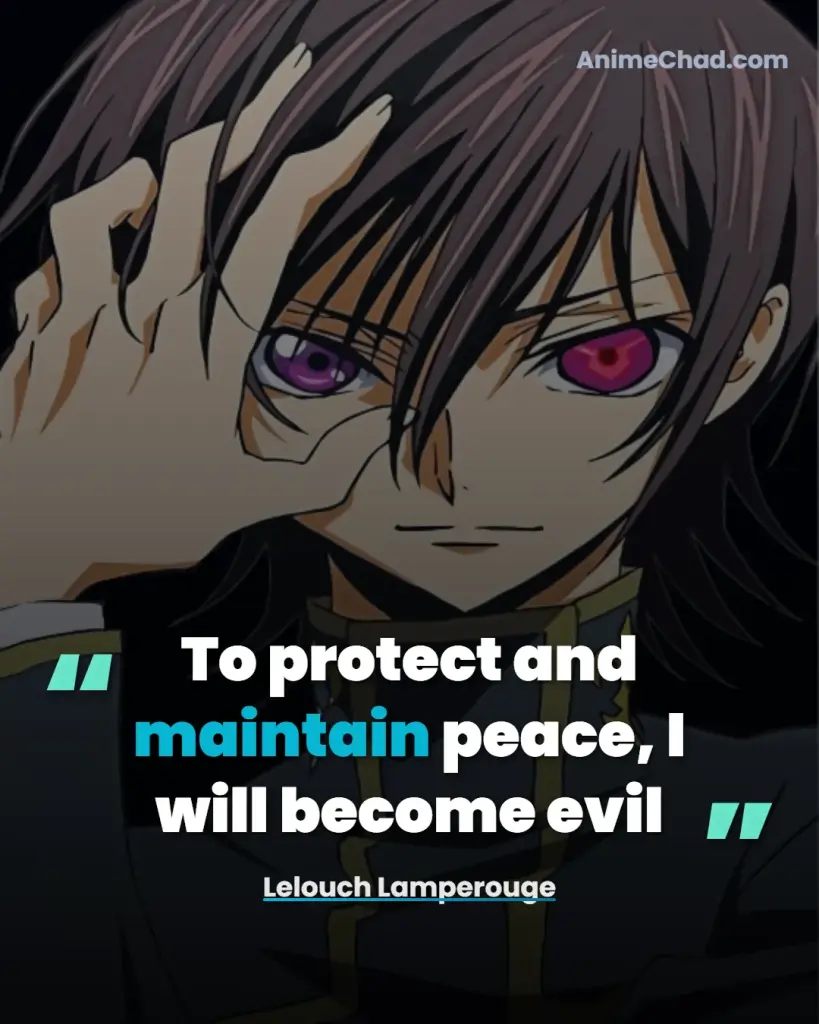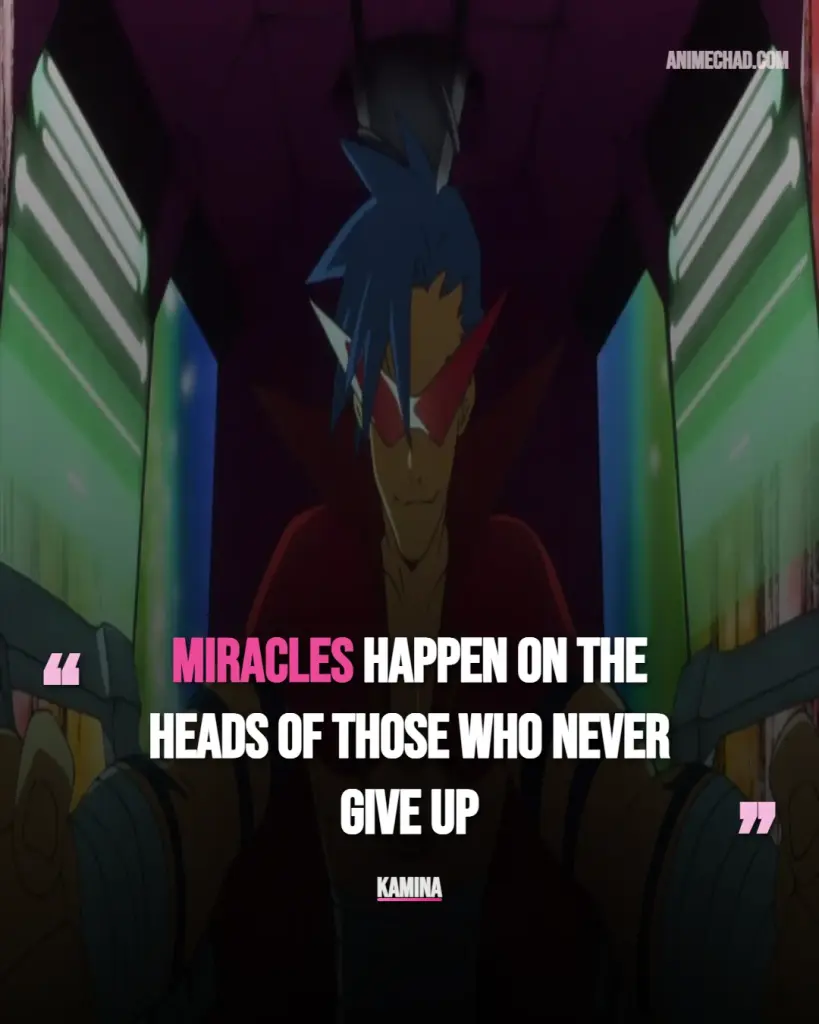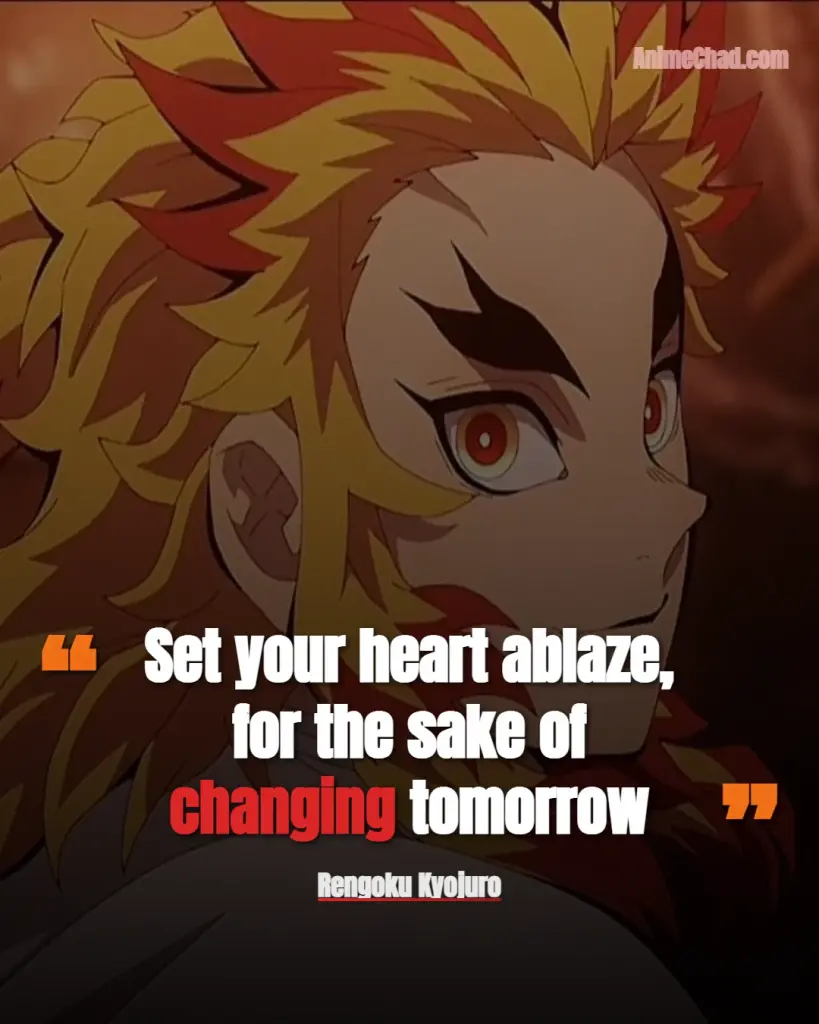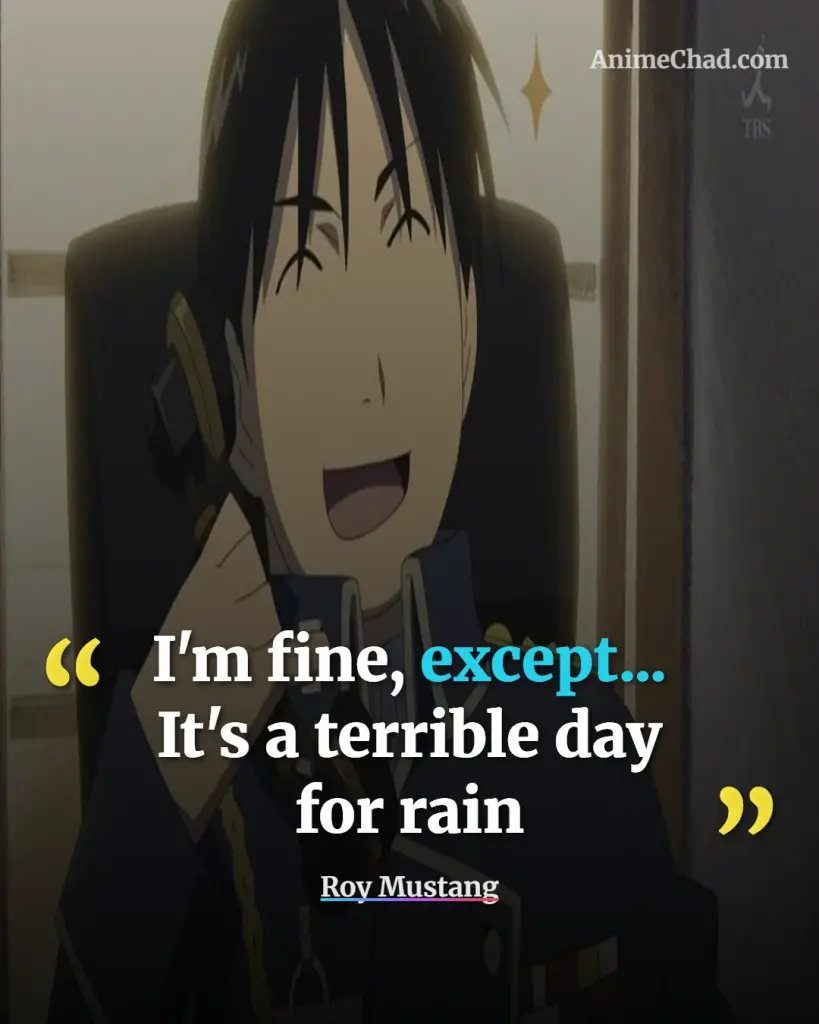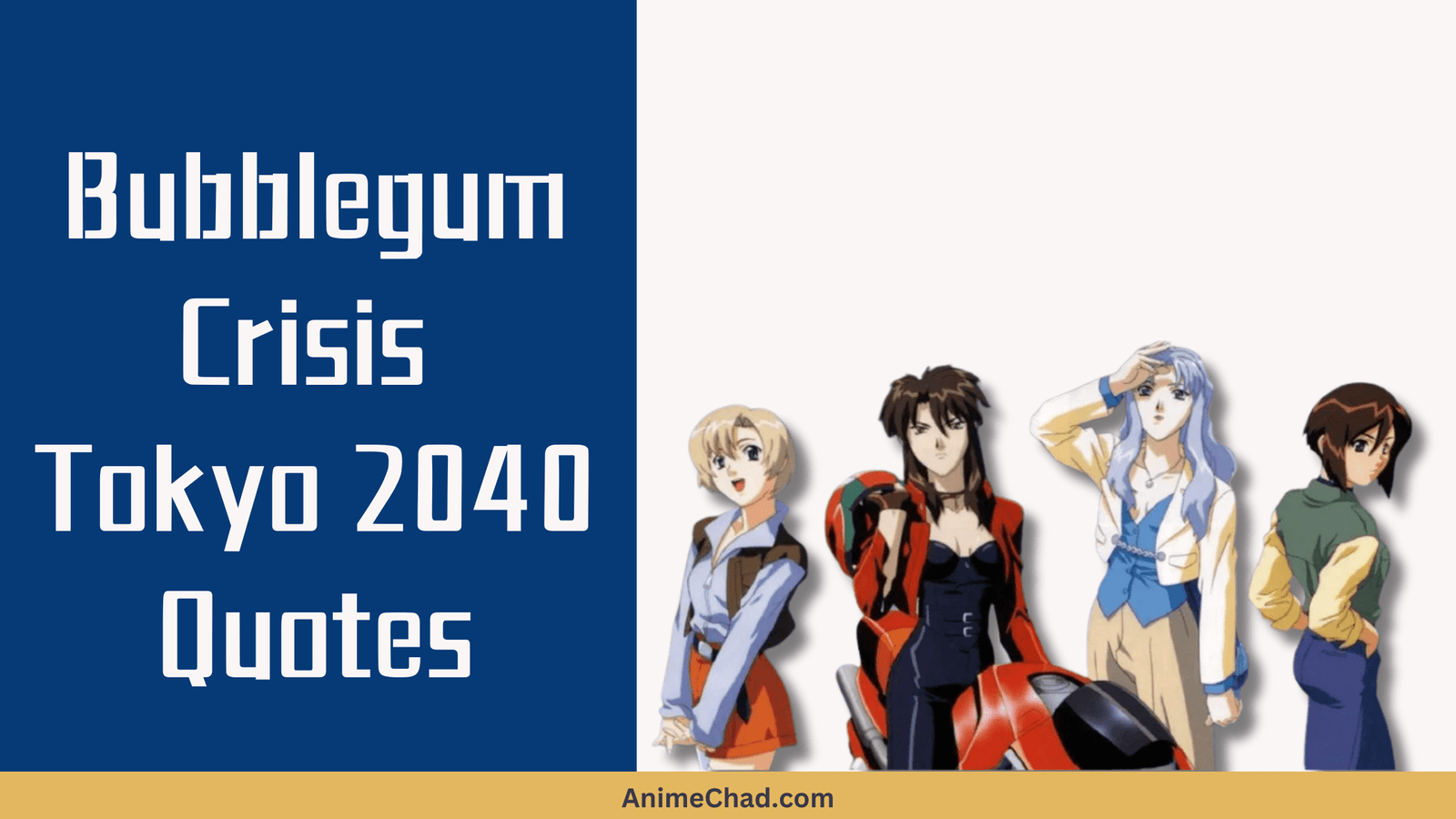Anime has captivated global audiences with its diverse storytelling, featuring characters who navigate profound journeys of growth, loss, and triumph. Series across genres explore timeless themes like friendship, resilience, self-discovery, and the human condition.
This collection curates 25 meaningful quotes from various anime, showcasing their emotional depth, character evolution, and ties to broader narrative motifs while blending intense battle scenes with reflective peaceful moments.
If you don’t take risks, you can’t create a future
[Episode Details]: Episode 3 (Worst Client)
[Speaker]: Monkey D. Luffy
[Context]: Luffy’s bold encouragement during a pivotal adventure inspires risk-taking for growth, highlighting perseverance and ambition in One Piece’s exploration of dreams.
Push through the pain. Giving up hurts more
[Episode Details]: Episode 277 (The Battle for Superiority)
[Speaker]: Vegeta
[Context]: Vegeta’s resilient mindset in a fierce battle underscores endurance over surrender, marking his prideful development in Dragon Ball Z’s themes of strength.
The strong should aid and protect the weak. Then, the weak will become strong, and they in turn will aid and protect those weaker than them. That is the law of nature
[Episode Details]: Episode 19 (Hinokami)
[Speaker]: Tanjiro Kamado
[Context]: Tanjiro’s compassionate vow amid demon-slaying reflects empathy fostering growth, connecting to Demon Slayer’s cycle of kindness and survival.
You will never be able to love anybody else until you love yourself
[Episode Details]: Episode 25 (All-Out War)
[Speaker]: Lelouch Lamperouge
[Context]: Lelouch’s introspective advice in a moment of vulnerability emphasizes self-acceptance for true bonds, tying to Code Geass’s identity struggles.
Fear is not evil. It tells you what your weakness is. And once you know your weakness, you can become stronger as well as kinder
[Episode Details]: Episode 83 (The Dragon of Despair)
[Speaker]: Gildarts Clive
[Context]: Gildarts mentors on embracing fears peacefully, promoting personal evolution and compassion in Fairy Tail’s themes of inner strength.
Human strength lies in the ability to change yourself
[Episode Details]: Episode 1 (Saitama)
[Speaker]: Saitama
[Context]: Saitama’s realization post-battle highlights adaptability as true power, reflecting his mundane-to-hero arc in One Punch Man’s satire on heroism.
You can die anytime, but living takes true courage
[Episode Details]: Episode 1 (The Rurouni Comes to Tokyo)
[Speaker]: Kenshin Himura
[Context]: Kenshin’s reflective words in a calm atonement phase stress bravery in existence, linking to Rurouni Kenshin’s redemption and peace motifs.
If you don’t share someone’s pain, you can never understand them
[Episode Details]: Episode 135 (The Long-Awaited Fight)
[Speaker]: Nagato
[Context]: Nagato’s pained confession during confrontation reveals empathy’s role in bonds, advancing his tragic development in Naruto’s cycle of hatred theme.
The world isn’t perfect. But it’s there for us, doing the best it can… that’s what makes it so damn beautiful
[Episode Details]: Episode 27 (Flame of Hope)
[Speaker]: Roy Mustang
[Context]: Mustang’s poignant observation in loss evokes appreciation amid chaos, showing his maturation in Fullmetal Alchemist’s human resilience narrative.
Knowing what it feels like to be in pain is exactly why we try to be kind to others
[Episode Details]: Episode 118 (Clash! Naruto vs. Sasuke)
[Speaker]: Jiraiya
[Context]: Jiraiya’s wise teaching in a mentorship moment fosters kindness from suffering, illustrating his mentor role in Naruto’s empathy themes.
Mistakes are not shackles that halt one from stepping forward. Rather, they are that which sustain and grow one’s heart
[Episode Details]: Episode 124 (The Sprouting of the Buds)
[Speaker]: Mavis Vermillion
[Context]: Mavis’s forgiving insight during guild recovery nurtures growth from errors, tying to Fairy Tail’s forgiveness and community bonds.
Believe in your own power
[Episode Details]: Episode 9 (The Ninth Hour)
[Speaker]: Mikasa Ackerman
[Context]: Mikasa’s empowering declaration in battle affirms self-reliance, marking her protective evolution in Attack on Titan’s survival struggles.
Everything has a beginning and an end. Life is just a cycle of starts and stops. There are ends we don’t desire, but they’re inevitable; we have to face them. It’s what being human is all about
[Episode Details]: Episode 26 (Ballad of Fallen Angels)
[Speaker]: Jet Black
[Context]: Jet’s philosophical reflection in quiet downtime accepts mortality, deepening his grounded persona in Cowboy Bebop’s existential themes.
People who continue to put their lives on the line to defend their faith become heroes and continue to exist on in legend
[Episode Details]: Episode 478 (The Unyielding Will of a Shinobi)
[Speaker]: Naruto Uzumaki
[Context]: Naruto’s inspirational rally in war embodies heroic legacy, showcasing his outcast-to-leader arc in Naruto’s perseverance motif.
We need to stop living for others. From now on…Let’s live for ourselves
[Episode Details]: Episode 72 (The Royal Succession)
[Speaker]: Historia Reiss
[Context]: Historia’s defiant stand against expectations signals independence, highlighting her identity reclaim in Attack on Titan’s freedom themes.
As the living, it is our responsibility to carry out the wishes of the ones who are gone
[Episode Details]: Episode 24 (Akame ga Kill!)
[Speaker]: Akame
[Context]: Akame’s resolute vow post-loss honors the deceased, driving her assassin-to-redeemer growth in Akame ga Kill!’s justice narrative.
I see now that the circumstances of one’s birth are irrelevant. It is what you do with the gift of life that determines who you are
[Episode Details]: Pokémon: The First Movie (Mewtwo Strikes Back)
[Speaker]: Mewtwo
[Context]: Mewtwo’s epiphany after conflict embraces self-determination, resolving his created-being crisis in Pokémon’s identity exploration.
No matter how messed up things get, you can always figure out the best solution
[Episode Details]: Episode 25 (To You, in 2000 Years)
[Speaker]: Eren Yeager
[Context]: Eren’s optimistic resolve in early turmoil shows naive hope, foreshadowing his idealistic-to-cynical shift in Attack on Titan’s fate themes.
Believe in the Kamina who believes in you
[Episode Details]: Episode 8 (Farewell, Comrades)
[Speaker]: Kamina
[Context]: Kamina’s motivational cry in battle boosts confidence through trust, cementing his inspirational legacy in Gurren Lagann’s ambition motif.
Just who the hell do you think I am
[Episode Details]: Episode 1 (Bust Through the Heavens with Your Drill!)
[Speaker]: Kamina
[Context]: Kamina’s defiant roar defies oppression, igniting self-belief and rebellion in Gurren Lagann’s defiance against limits.
Bang
[Episode Details]: Episode 26 (The Real Folk Blues, Part 2)
[Speaker]: Spike Spiegel
[Context]: Spike’s final, stoic utterance accepts fate peacefully, encapsulating his cool detachment and closure in Cowboy Bebop’s fatalistic tone.
To protect and maintain peace, I will become evil
[Episode Details]: Episode 1 (The Day a New Demon Was Born)
[Speaker]: Lelouch Lamperouge
[Context]: Lelouch’s moral sacrifice declaration sets his anti-hero path, exploring ethics in Code Geass’s power and rebellion arcs.
Miracles happen on the heads of those who never give up
[Episode Details]: Episode 11 (Simon, Hands-Off)
[Speaker]: Kamina
[Context]: Kamina’s encouraging words amid despair promote persistence, fueling underdog triumphs in Gurren Lagann’s limitless potential theme.
Set your heart ablaze, for the sake of changing tomorrow
[Episode Details]: Episode 19 (Tsuguko)
[Speaker]: Rengoku Kyojuro
[Context]: Rengoku’s fiery exhortation in combat inspires purposeful living, honoring his heroic sacrifice in Demon Slayer’s determination motif.
I’m fine, except… It’s a terrible day for rain
[Episode Details]: Episode 13 (Flame Alchemist)
[Speaker]: Roy Mustang
[Context]: Mustang’s veiled grief at a funeral masks vulnerability, revealing emotional depth in Fullmetal Alchemist’s loss and humanity themes.

